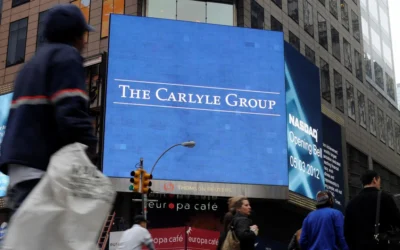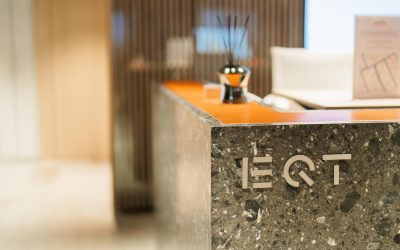Lower merger and acquisition prices could be one positive byproduct of the stock market’s recent volatility.
Oil fell more than 20% on Monday, after Saudi Arabia instigated a price war with Russia. This caused the Dow Jones Industrial Average and the S&P 500 (SPX) to each plunge more than 7% Monday, causing the New York Stock Exchange to halt trading. The Dow ended up closing down 7.8% at 23,851, while the S&P 500 ended off 7.6% to 2,746.56.
The volatility has caused some M&A and initial public offering deals to be put on hold, banking sources said. Warner Music Group and Cole Hann have opted to put their IPOs on ice, Reuters reported.
Some transactions in India and Europe have been postponed, said Paul Aversano, managing director and global practice leader of Alvarez & Marsal’s global transaction advisory group. “We’re starting to see that here in the U.S.,” Aversano said Monday.
In the first quarter, M&A for large deals was already slow, a middle market lender said. “A good number of big underwriting commitments by loan arrangers have been pushed off,” the person said. One private-equity executive of a middle-market firm said “debt was shaky.”
Valuations in health care are down across the sector, one banker said. “This could result in many sales processes being disrupted,” the banker said.
Some portfolio companies, mainly industrial, are experiencing a slowdown due to supply chain issues, people said. Demand has become a problem.
oronavirus fears have caused many consumers to avoid travel, while concerts and conferences are being canceled. The travel and leisure space is also seeing deals canceled, Aversano said.
Many private-equity firms last week assessed their portfolio companies, and worked with management teams to put Covid-19 plans in place, bankers said. KKR (KKR), for example, asked its portfolio companies recently to come up with scenarios on which assets were adversely impacted by the virus. The New York buyout shop has teams working around the clock and is in regular dialogue with companies providing support, guidance, and sharing best practices, a person familiar with the situation said.
Not all is doom and gloom. Alvarez & Marsal is known for its restructuring business but it also has a global M&A practice. The New York firm saw “a bunch of new buy-side transactions” last week, Aversano said. On the sell side, the firm is seeing a healthy pipeline of transactions coming to market, he said. “That will likely change in the short term,” he said. One private-equity executive said the supply chain for his industrial portfolio company has improved since February.
The coronavirus may also cause prices for M&A transactions to drop, Aversano said. For several years, the busy M&A market frequently saw companies sell for sky-high valuations. Strong software or fintech companies, before the virus, would often fetch high-teens multiples of earnings before interest, taxes, depreciation, and amortization, or Ebitda. For example, Visa (V) in January acquired Plaid for $5.3 billion, or nearly 50 times revenue.
That may change now. Aversano said the average sell-side multiple before the coronavirus was 11.9 to 12 times Ebitda. This may drop to 9 or 10 times. “When you have all this volatility, people aren’t going to pay 12 times anymore,” he said.
It will take some time, possibly six to nine months, before sellers accept the “new normal,” he said. This could lead to a pause in the M&A market as parties adjust to the less frothy market. “People have to realize what their companies are really worth,” he said.
The major beneficiary of all this volatility? Private equity. The PE industry, including venture capital and fund-of-funds, is sitting on a $1.71 trillion war chest that it needs to put to work. “This correction or recession will create significant buying opportunities for private equity, which has a record amount of dry power,” Aversano said. “There’s also a very low interest rate environment.”
Source: Barron’s
Can’t stop reading? Read more
Carlyle and Goldman Sachs open private credit funds to Willow users with $10,000 minimum
Carlyle and Goldman Sachs open private credit funds to Willow users with $10,000 minimum Carlyle,...
EQT, PAI, and Stone Point shortlisted for €2bn takeover of Castik-backed Global Group
EQT, PAI, and Stone Point shortlisted for €2bn takeover of Castik-backed Global Group EQT, PAI...
CAIS Advisors unveils retail vehicle giving investors a stake in elite sports and media
CAIS Advisors unveils retail vehicle giving investors a stake in elite sports and media Eldridge...




